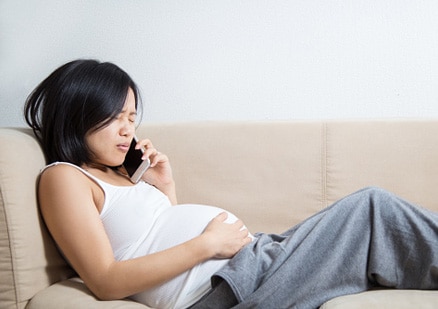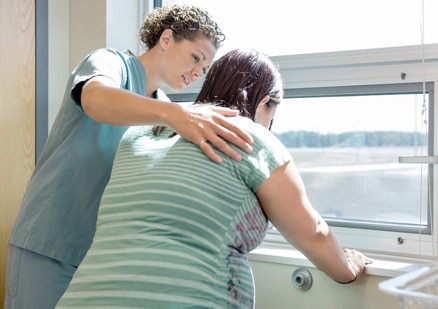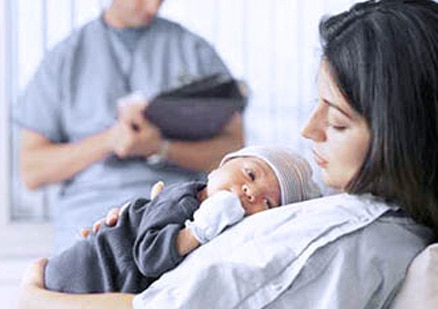Signs your body is getting ready for labor

Giving birth is a natural process. Your body is designed to give you signs of labor so you know it’s coming soon. Here are some of the ways it might let you know it’s time.
Your baby drops
If you’re a first-time parent, your baby might start settling into your pelvis a few weeks before you deliver, so it’s not always a sign of labor. If you’ve given birth before, you’re more likely to go into labor right after your baby drops.
No matter how much you’ve prepared, it’s normal to feel unsure, anxious, or a little bit scared when you start labor. Just stay calm and give your care team a call. Kaiser Permanente cared for more than 116,000 parents giving birth last year, so you’re in good hands with your labor and delivery team.
You have mucus or bloody discharge
This is sometimes called a “bloody show,” and it happens when you pass the mucus plug that sealed off your uterus during pregnancy to protect your growing baby. It’s one of the steps your body goes through to prepare for delivery, and it could mean labor is about to begin. However, sometimes it happens 2 to 3 weeks before your baby is really ready to arrive. Call your care team if you have bleeding like a period, and we’ll let you know if it’s time to head to the hospital or not.
You have contractions
You’ll have more cramps and contractions. If you feel contractions regularly every 10 to 15 minutes, especially if they don’t go away when you move around, this may be labor. Learn how to count your contractions to determine whether or not you’re in labor.
Your water breaks
This usually means labor will start within a day. If your water breaks or if you think you might be leaking fluid, call your labor and delivery department. Let us know when it happened and what color the fluid was, and we’ll walk you through what to do next.
Northern California members:
Visit Your Pregnancy to sign up for prenatal classes, get weekly emails, view and prepare for appointments, and more.
Learn about CenteringPregnancy®, a unique prenatal care program that includes group support with other new moms.


